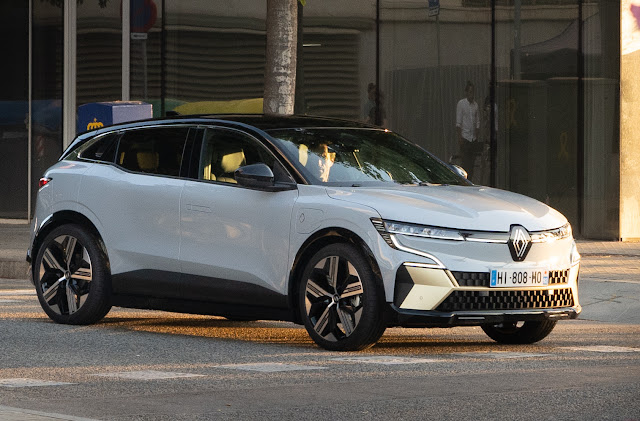 |
| Renault's Megane E-Tech Electric, due here in 2022. |
The overall European car market is expected to remain the global leader in electric vehicle market share through the rest of this decade, writes Brian Byrne.
That's the conclusion of a new report from international management consultants McKinsey & Company, Why the automotive future is electric, which also suggests that the 'tipping point' in passenger EV adoption occurred in the second half of 2020 when the sector accelerated to 8pc of new car sales across Europe. This is against a consumer interest background where almost half of car customers are considering the purchase of an EV.
Regulatory targets in the EU and the US are now aiming for EVs achieving a 50pc share of passenger car sales by 2030. But the report also notes this trend is putting significant pressure on carmakers and their supply chains, and on setting up required charging infrastructures to meet the demand.
The authors also say that the current EV expected adoption of 45pc globally is far short of the necessary 75pc needed to achieve net zero emissions from the automotive industry. That said, it is expected that the three largest car markets — the EU, the US and China — will be fully electric by 2035. The designation includes battery-powered (BEV), fuel cell (FCEV) and plug-in hybrid (PHEV).


